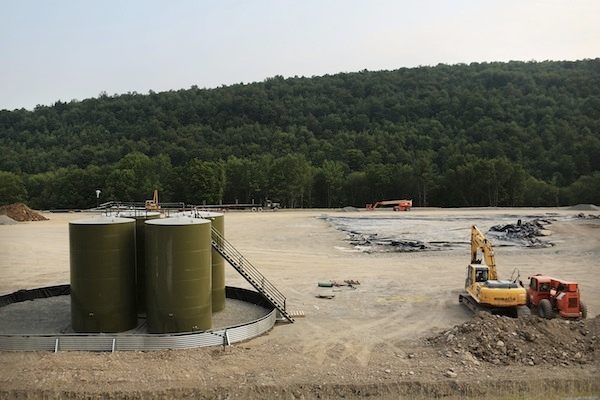After the noisy protests over oil drilling in Balcombe, you might be forgiven for thinking that there are just two groups in the fracking debate: the Caroline Lucases, who oppose the technique outright, and then those who think shale gas is the best thing we ever discovered, better even than sliced bread. But there is a third group, which is quieter than the others, yet yields a great deal of power over how impressive this country’s shale gas revolution will really turn out to be. I introduce this group of worried locals, still unconvinced by the incentives currently on offer from the government, in my Telegraph column today.
MPs whose constituencies sit on top of the biggest horde of shale found so far are worried that the 1 per cent of shale revenues currently on offer won’t be enough to convince their local councils to approve fracking in their areas. Fracking pads are not big – only around the size of two football pitches – and so they will not have as much of an impact on the local landscape as a wind farm, but councillors sitting on the mineral planning committees approving the exploitation of shale gas will want to be sure that their areas will benefit from these developments, rather than the Treasury filling its coffers with tax revenues that are then spent on Crossrail. The stakes are particularly high for those councils approving fracking on the Bowland Shale: as Ben Wallace, the Tory MP for Lanacaster and Wyre, explained in a recent letter to the Prime Minister, ‘the counties of England who could benefit read like the cast list of the industrial revolution – Yorkshire, Lancashire, Cheshire, and Derbyshire’. Wallace tells me that his constituents ‘want our industrial revolution back’, but adds, ominously:
‘David Cameron has a once in lifetime chance to show the Tories will invest in the North and rebalance Britain.’
Of course, there is the argument that this shouldn’t just be about incentives paid by the industry: fracking will bring jobs to those former industrial revolution heartlands, too. The Institute of Directors estimates that fracking could create 74,000 jobs both in the industry itself and in retail and service industries supporting these new workers. Fracking enthusiasts point to the way North Sea Oil created a centre of excellence in Aberdeen, bringing life to the city.
And there is one final problem: we still don’t know how much 1 per cent of a fracking company’s revenues would look like because fracking is still at the exploratory stage in this country. Dan Byles, chair of the all-party parliamentary group on unconventional oil and gas, says:
‘It’s too early to tell: there’s no gas coming out of the ground so we don’t know how much that 1 per cent will mean in terms of real money. It should be flexible so that in the future we can decide that there isn’t enough money going to communities and change it, but we firstly need to know how much is actually out there.’
But there is a clear warning from MPs who support fracking: ministers can’t take the support of their constituents and local politicians for granted. The last thing the government wants, after all, is for the dash for gas to turn into a bit of a plod.







Comments